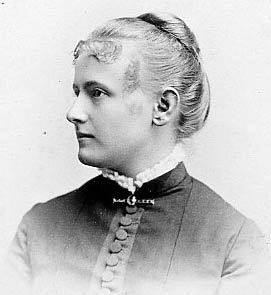Readings:
Job 38:1, 34-41
Psalm 25:1-14
Romans 12:1-2, 14-21
John 6:37-51Preface of a Saint (3)
[Common of a Prophetic Witness]
[For Prophetic Witness in Society]
[For Peace]
[For Education]
PRAYER (traditional language)
Most gracious God, who didst send thy beloved Son to preach peace to those
who are far off and to those who are near: Raise up in thy church witnesses
who, after the example of thy servant Vida Dutton Scudder, stand firm in proclaiming
the power of the gospel of Jesus Christ, who liveth and reigneth with thee
and the Holy Spirit, one God, now and for ever. Amen.
PRAYER (contemporary language)
Most gracious God, you sent your beloved Son to preach peace to those who are
far off and to those who are near: Raise up in your church witnesses who, after
the example of your servant Vida Dutton Scudder, stand firm in proclaiming
the power of the gospel of Jesus Christ, who lives and reigns with you and
the Holy Spirit, one God, now and for ever. Amen.
Lessons revised at General Convention 2024.
Return to Lectionary Home Page
Webmaster: Charles Wohlers
Last updated: 10 August 2024
VIDA DUTTON SCUDDER
EDUCATOR AND WITNESS FOR PEACE
(10 October 1954)
 Vida
Dutton Scudder (December 15, 1861- October 9, 1954), educator, activist
and founder of the Episcopal Church Socialist League was born to Congregationalist
missionaries in India. In the 1870s, Vida and her mother were confirmed
as Episcopalians by Phillips Brooks.
After studying English literature at Smith College and Oxford University,
Scudder began teaching at Wellesley College. Her love of scholarship was
matched by her social conscience and deep spirituality. As a young woman,
Scudder began the College Settlements Association, joined the Society
of Christian Socialists, and began her life-long association with the
Society of the Companions of the Holy Cross in 1889. In 1893, Scudder
took a leave of absence from Wellesley to work with Helena Stuart Dudley
to found Denison House in Boston. Scudder experienced a breakdown in 1901
due to the stress of teaching and activism. After two years of recuperation
in Italy, she returned renewed and became more active in church and socialist
groups; she started a group for Italian immigrants at Denison House and
took an active part in organizing the Women’s Trade Union League.
In 1911, Scudder founded the Episcopal Church Socialist League, and formally
joined the Socialist party. Her support of striking textile workers in
the Lawrence, Massachuetts strike in 1912 drew a great deal of criticism
and threatened her teaching position. Though she initially supported World
War I, she joined the Fellowship of Reconciliation in 1923, and by the
1930s she was a pacifist. Throughout her life Scudder’s primary
relationships and support network were women; her closest companion was
Florence Converse, who shared in her religious faith and political ideals.
After retirement, Scudder authored sixteen books
on religious and political subjects, combining her intense activism
with and an equally vibrant spirituality. She was the first woman published
in the Anglican Theological Review.
Vida
Dutton Scudder (December 15, 1861- October 9, 1954), educator, activist
and founder of the Episcopal Church Socialist League was born to Congregationalist
missionaries in India. In the 1870s, Vida and her mother were confirmed
as Episcopalians by Phillips Brooks.
After studying English literature at Smith College and Oxford University,
Scudder began teaching at Wellesley College. Her love of scholarship was
matched by her social conscience and deep spirituality. As a young woman,
Scudder began the College Settlements Association, joined the Society
of Christian Socialists, and began her life-long association with the
Society of the Companions of the Holy Cross in 1889. In 1893, Scudder
took a leave of absence from Wellesley to work with Helena Stuart Dudley
to found Denison House in Boston. Scudder experienced a breakdown in 1901
due to the stress of teaching and activism. After two years of recuperation
in Italy, she returned renewed and became more active in church and socialist
groups; she started a group for Italian immigrants at Denison House and
took an active part in organizing the Women’s Trade Union League.
In 1911, Scudder founded the Episcopal Church Socialist League, and formally
joined the Socialist party. Her support of striking textile workers in
the Lawrence, Massachuetts strike in 1912 drew a great deal of criticism
and threatened her teaching position. Though she initially supported World
War I, she joined the Fellowship of Reconciliation in 1923, and by the
1930s she was a pacifist. Throughout her life Scudder’s primary
relationships and support network were women; her closest companion was
Florence Converse, who shared in her religious faith and political ideals.
After retirement, Scudder authored sixteen books
on religious and political subjects, combining her intense activism
with and an equally vibrant spirituality. She was the first woman published
in the Anglican Theological Review.
from the Episcopal Women's History Project
See also an article in Wikipedia